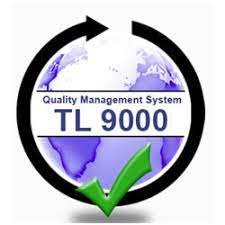Quality Management Systems (ISO 9001:2015, ISO 13485, TS 16949)
ISO 9001:2015
Business success is founded on performance, and optimal performance requires a philosophy and operational actuality of dynamism and efficiency.
In the current economic climate, only ambitious organisation will flourish, while those contenting themselves with mediocrity will lapse into inertia. The success of today’s market leaders derives from a desire to be the best, a desire realised through the pursuit of quality.
A quality culture is not something which develops ad hoc in an organisation, rather it is something which is inculcated through a system at the organisation’s core.
Only if an organisation’s management system itself is founded on quality, can the organisation hope to achieve quality in every aspect of its activities, and success in realising its financial and economic objectives.

Achieving optimal operational performance requires organisational commitment to the process approach and continual improvement prescribed by a Quality Management System. ISO 9001:2015 is the internationally recognised standard for quality management proficiency, and a prerequisite for discerning consumers worldwide. The implementation of a Analytical Quality Solutions Pvt Ltd. opens up previously inaccessible markets, communicating a standard of competence and quality in a universally comprehensible international business language.
In conjunction with ISO 14001:2015 (environment) and OHSAS 18001:2007 (occupational health & safety), ISO 9001:2015 forms the cornerstone of the twenty-first century corporate gold standard.
The Benefits of a Quality Management System
The implementation of a Quality Management System is a powerful tool in the attainment of competitive advantage in the marketplace through continuous performance improvement. It provides manifold direct benefits to an organisation, including:
- Improved profitability
- Improved revenues
- Improved budgetary performance
- Reduced costs
- Improved cash flow
- Improved return on investment
- Increased competitiveness
- Improved customer retention and loyalty
- Improved effectiveness and decision making
- Optimised use of available resources
- Heightened employee accountability
- Improved intellectual capital
- Optimised, effective and efficient processes
- Improved supply chain performance
- Enhanced organisational performance, credibility and sustainability
A Quality Management System is applicable to virtually any organisation, of any size and nature, anywhere in the world. The most successful companies in every sector of today’s competitive global marketplace recognise the importance of quality management; indeed it is this recognition which engenders their success
ISO 13485
ISO 13485 offers medical device manufacturers an avenue to effective management systems.
ISO 13485 represents the requirements that medical device manufacturers must incorporate into their management systems. The current document supersedes its 1996 incarnation as well as EN 46001, EN 46002 and ISO 13488.
Though based on ISO 9001, 13485 removes 9001’s emphasis on continual improvement and customer satisfaction. In its place is an emphasis on meeting regulatory as well as customer requirements, risk management and maintaining effective processes, namely the processes specific to the safe design, manufacture and distribution of medical devices.
13485 is in part designed to produce a management system that facilitates compliance to the requirements of customers and—preeminently—various global regulators. While being certified to 13485 does not fulfill the requirements of either the FDA or foreign regulators, the certification aligns an organization’s management system to the requirements of the FDA’s Quality System Regulation (QSR) requirements as well as many other regulatory requirements found throughout the world. Therefore, 13485 certification serves to create a management system that can be thought of as a framework on which to build compliance to various regulatory and customer requirements.
TS 16949
The ISO/TS-16949 Standard is an ISO Technical Specification that defines the quality system requirements for the design/development, production, installation, and servicing of automotive-related products. It was written by the International Automotive Task Force (IATF) in conjunction with the International Standardization Organization (ISO). The IATF consists of an international group of vehicle manufacturers and national trade associations.
The ISO/TS-16949 aligns into one global specification all existing standards erstwhile used in the automotive industry: the Americans’ QS-9000, the Germans’ VDA6.1, the French’s EAQF, and the Italians’ AVSQ. It will be used throughout the entire supply chain of the automotive industry, and is now gaining acceptance to be the replacement of QS-9000 when the latter is phased out, since it is based on the already obsoleted ISO-9001:1994.
It would be worthwhile to take a look at the similarities and differences among the QS-9000, the ISO/TS-16949:1999 (the older version of the standard), and the ISO/TS-16949:2002 (the latest version of the TS-16949, released in March, 2002).
A process for measuring customer satisfaction is one of the notable requirements of both the ISO/TS-16949:1999 and the QS-9000.
The newer ISO/TS-16949:2002, however, additionally specifies the following requirements:
1) a continuous process for monitoring customer perception of whether their contractual requirements have been met exactly or not;
2) a continuous evaluation and analysis of technical, manufacturing, and testing data; and
3) demonstration with evidence of compliance with customer requirements and efficiency of processes.
